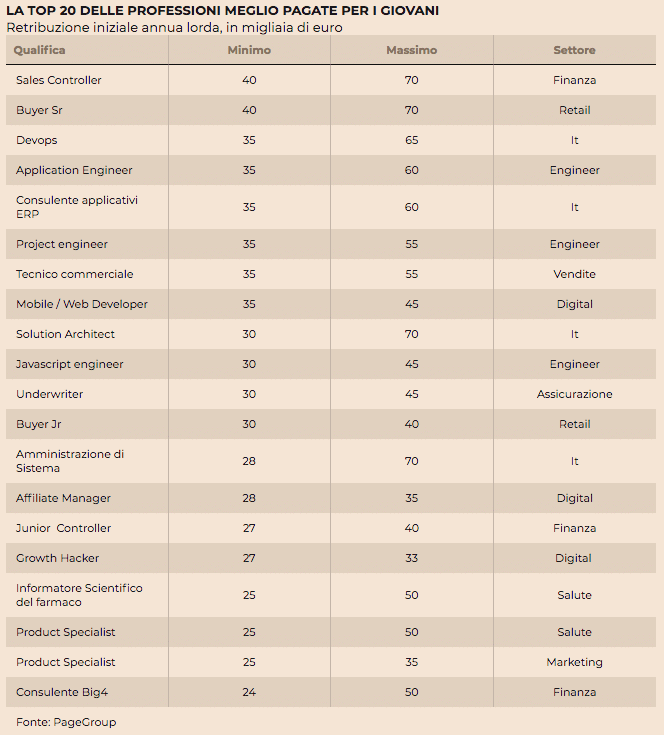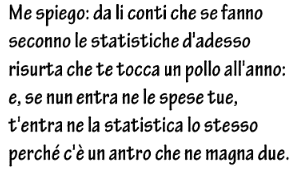On "Il Sole 24ORE" of 2 March 2019 a research carried out by PageGroup, a recruiting group specialized in salary surveys, is reported on workers' salaries and, in particular, the business newspaper reports a ranking of top 20 jobs with the highest salaries in Italy.
The Confindustria newspaper focuses above all on the affiliate manager, the growth hacker, the Javascript engineer. A trio of aces which, in the picture 
After describing the functions of those jobs, the business newspaper continues: “But there is not only the digital world. In the top 20 of the best paid "jobs" for young people, there are also figures who operate in other universes: from finance to retail, from health care to insurance.
They range from sales controllers for finance to buyers for retail, from drug sales representatives to product specialists”.
Obviously, we are interested in dwelling on the inclusion of the ISFs in this ranking.
PageGroup explains: “The goal of our Salary Survey is to provide an accurate and updated view of the salary levels of the most requested profiles, but also to assist companies and candidates in the delicate phase of negotiating salary aspects.
These studies are the result of the daily work of the consultants and of the evaluation of the candidates encountered each month, the subject of an in-depth analysis of the paths, aspirations and economic conditions of the candidates.
For each role we have taken into consideration market trends as well as possible career evolutions”. “Le retribuzioni vengono presentate secondo un importo minimo e massimo comprendendo la parte variabile non considerando benefit quali alloggio, auto aziendale e stock options”

But even this would not be a truthful fact, to be true, it would be necessary to know how many ISFs take 50,000 euros a year and how many 2,400 euros, even if, for the latter, it would be necessary to calculate a negative figure, i.e. how much it takes them to work. In other words, a median value would be needed, which is impossible to obtain because there are no official data on how many ISFs are present in Italy or how they are contractually framed.
Even if AIFA made them known, why should pharmaceutical companies for law communicating the number and names of the ISF employed, these data would probably not be reliable either. Do all pharmaceutical companies provide this data? Are we sure, for example, that all those companies that hire "multi-firm" FSIs (an exceptional situation which by law must have specific ministerial authorization after evaluation by AIFA) communicate to AIFA the number of FSIs they employ?
The PageGroup figure evidently refers to the ISF under National Contract of Chemists, but this figure could be misleading and illusory, especially for those young people who think of taking up this profession. We do not know, even if we assume it, how many "VAT-registered" ISFs there are with more or less atypical and shamefully underpaid contracts. However, we know that every year there are more and more.
ISF, a profession apparently protected and regulated by law. Actually abandoned to the law of the jungle.
Redazione Fedaiisf – 4 marzo 2019
Related news: The sun 24 hours
